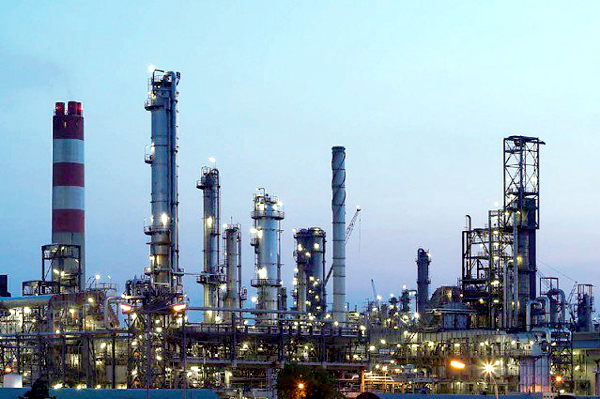Oil Price Crash: The Impact on Pakistan
The oil price crash means that oil suppliers are practically paying the buyers into taking oil from them, as the demand has dampened across the world, including Pakistan.
Last night, we saw a global oil price crash where for the first time ever, the prices fell into negative! The oil price crash means that oil suppliers are practically paying the buyers into taking oil from them, as the demand has dampened due to the COVID-19 pandemic and lock downs across the world, including Pakistan.
Oil firms globally have started to rent tankers to store the surplus supply of oil and that has forced the price of US oil into negative territory. The price of a barrel of West Texas Intermediate (WTI), the benchmark for US oil, fell as low as minus $37.63 a barrel.

What does Future Prices Mean?
Futures are a type of contract where a price is decided upon in the present at which the future contract is going to take place. May futures contracts are due to expire on Tuesday (April 21), and traders were very willing to offload those holdings to avoid having to take delivery of the oil and incur storage costs.
Now many of us may think that if the oil prices are low, this may all be well and good for us since Pakistan is an importer. I’ll discuss some of the factors below to show both sides of the coin.
Impact of Oil Price Crash on PSX and Industry
Last month we saw the impact of Saudi Arabia declaring an Oil Price War amidst the COVID-19 pandemic. It is worth noting that oil exploration and production companies make up 15.3% of the total market capitalisation. These companies also consist of 13.2% of the KSE-100 index with Oil & Gas Development Co. (OGDCL) being the second largest stock in terms of market capitalisation.
Oil exploration and production companies are negatively impacted as the lower crude oil prices lead to fall in the exploration. This reduces the local oil investment – in the past, a fall in the crude oil price has led to a fall in the shares of companies such as PSO and OGDCL. From 2014-2016, we saw a general trend of decreasing oil prices, and according to OGRA’s reports from that time period, there was a fall of 63% in the offer cost of OGDCL.

Oil marketing companies (OMCs) and refineries will also bear a negative impact. OMCs will witness lower prices as furnace oil and RLNG margins are fixed as a percentage of oil prices. On the other hand, banks will also bear a negative impact due to the crisis.
Lower oil prices would have a positive impact on the cement, auto and steel and glass industries. Cement sector will benefit as raw material (coal and clinker) costs make up around 40% of the overall cost, noting that coal prices have also started to decline with the oil price slash.
At the rate former PM Abbasi agreed on with Qatar for buying LNG (at 13% of Brent Oil Price), Pakistan will be buying LNG from Qatar at $2.6 to $2.8 per mmbt, which would be much more feasible for the country than our own local gas. This could also lead to lower cost of energy, which is a serious crisis in Pakistan. Furthermore, it could also lower the gas tariffs of the industrial sector of the nation to the point that it is less than what the government is charging the exporters after subsidy.
Impact of Oil Price Crash on Inflation
 There has been a decrease in the money supply in the market as people are not spending money on anything other than the basic essentials. The lock down has reduced consumer activities in Pakistan, and so inflation has been decreasing little by little for a while.
There has been a decrease in the money supply in the market as people are not spending money on anything other than the basic essentials. The lock down has reduced consumer activities in Pakistan, and so inflation has been decreasing little by little for a while.
To tackle the money supply issue, State Bank of Pakistan cut down the interest rates in 3 steps in the past month or so – the first cut was from 13.25% to 12.5%; the second cut was from 12.5% to 11%; the third cut was from 11% to 9%. However, even this has had a negative impact on FDIs, and the SACRA outflows were extremely high in March.
Impact of Oil Price Crash on Balance of Payments
In the financial year 2014-2015, Pakistan saw a decrease in the bill of oil imports (from $15.36 billion to $11.86 billion, a 22.8% fall). These caused a decrease in the current account deficit and showed a positive impact on the foreign exchange reserves.

Alpha Beta Core CEO Khurram Schehzad stated during the oil price reductions in March, “It was a good development for Pakistan macros, as massive decline in oil prices may lead to decline in energy imports, thereby helping reduce trade deficit; pass-on should lead to decline in inflation, as well as reduced energy costs to businesses/industrial sector, besides potential to improve indirect taxes for the government and decrease in subsidies from the government.”
About Us:
Runway Pakistan is a complete solution provider for all your marketing communications related requirements. The ultimate hub of infotainment – Runway composes of all the key offerings – Monthly Print Magazine, Digital Magazine, Media Production, Creative Agency, PR Agency and Marketing Consultancy that a brand needs to be seen, heard and known!
Like and follow our Facebook page:


